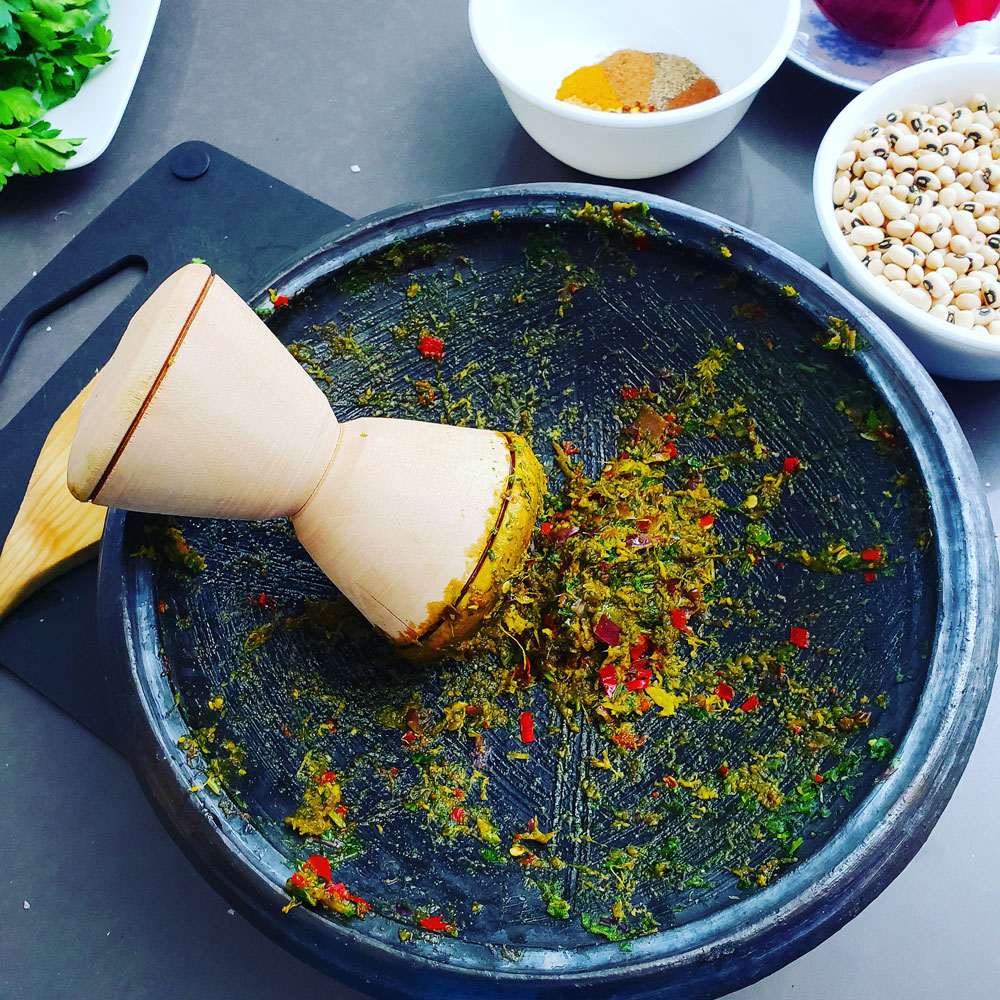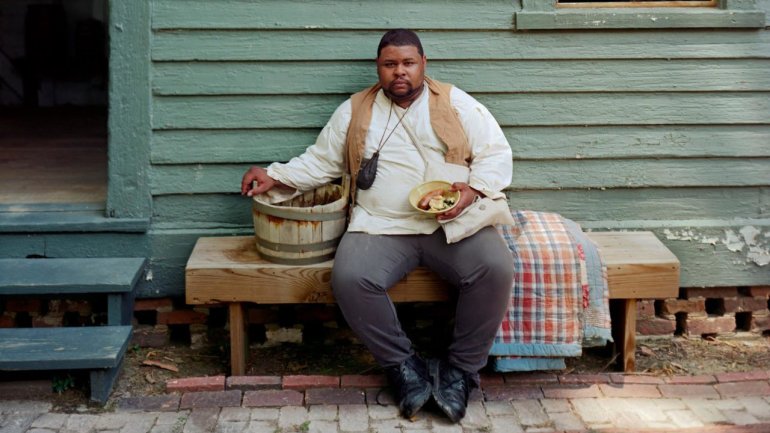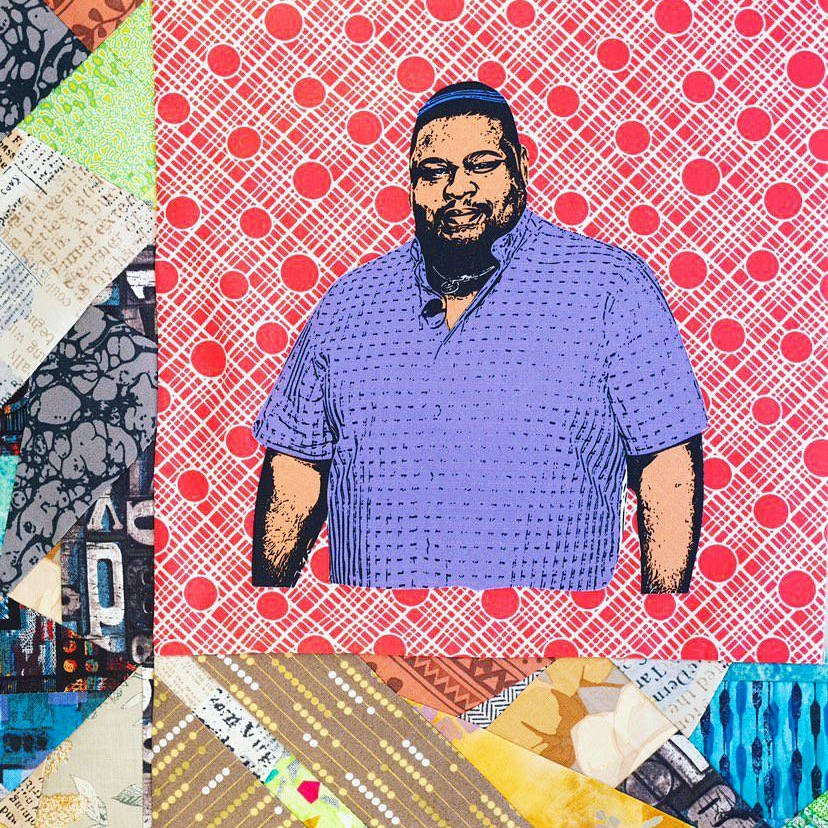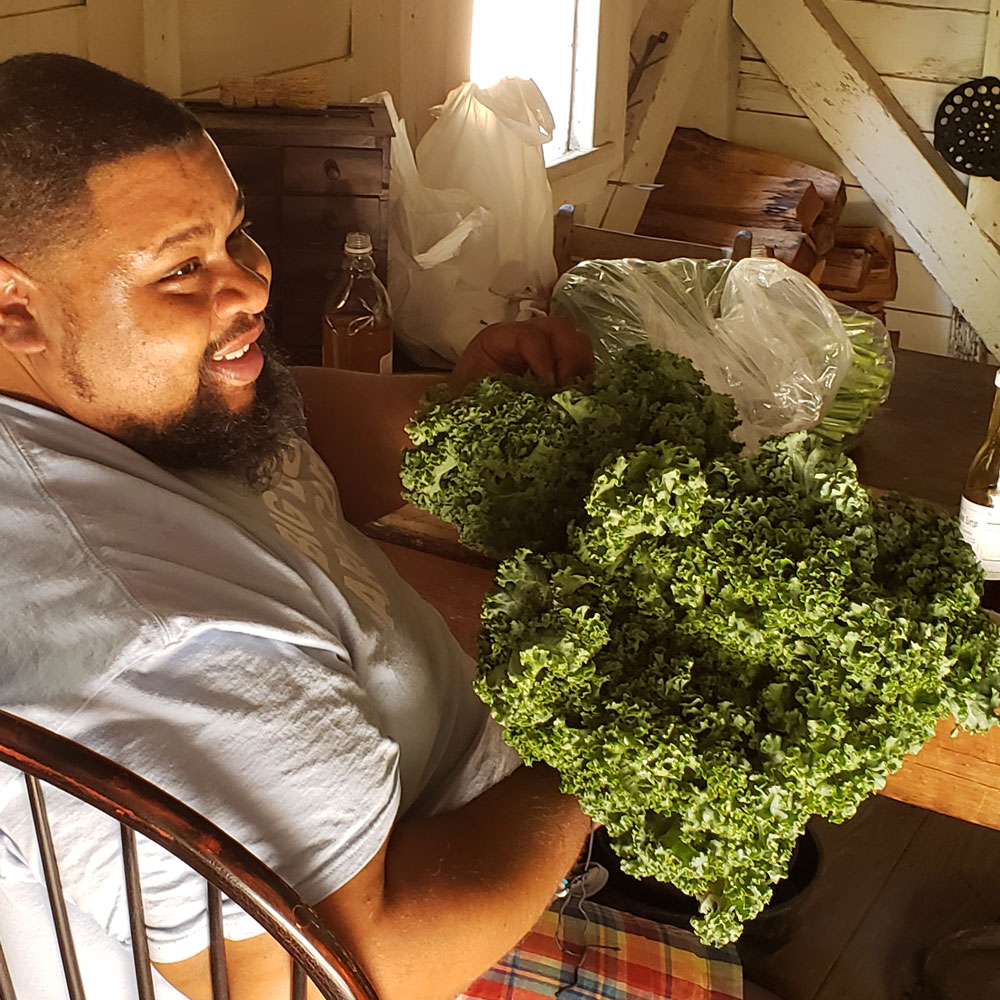The Queue: Michael Twitty
Discover what individuals from our craft community are into right now.
↑ Michael Twitty is a writer, culinary historian, educator, and winner of the 2018 James Beard Foundation’s awards for Writing and Book of the Year for The Cooking Gene.
The Queue: Kitchen Table Series
A weekly roundup for and by the craft community, the Kitchen Table series of The Queue introduces you to the makers, writers, curators, and more featured in the most recent issue of American Craft. We invite them to share their shortlist of exciting projects, people to follow, and content to consume to help you stay dialed into what's hot in the world of making.
Michael Twitty on kitchen techniques with no manual and history's relevance today
Writer, culinary historian, and educator Michael Twitty contributed a Kitchen Heirloom Object Story to the June/July 2020 issue of American Craft. He is also the winner of the 2018 James Beard Foundation’s awards for Writing and Book of the Year for The Cooking Gene. @thecookinggene
How would you describe your work or practice in 50 words or less?
I’m a writer and historical interpreter, and maybe I’m less of a classic foodie. My goal is to be the first master chef of Southern cuisine as practiced by the African American chefs of the colonial and antebellum period. We set the nation’s table, and I want to revive and preserve the minutiae of that art as best we can before our collective sense of it disappears.
How are you staying healthy and finding balance during the COVID-19 breakout, both personally and professionally?
I’m doing all the things I’m not usually able to do while I’m on the road. I’m writing, I’m cooking at home, and a few friends and family are here to help me cook and test recipes. When you work for your supper, you burn calories and eat a lot less than you think. I’ve been working on creating my own curriculums for further personal projects. I've also been intent on finishing my next book from HarperCollins, Koshersoul, exploring the culinary and cultural connections between my Black and Jewish identities, as well as the culinary lives of Black American Jews.
What are your thoughts on the relationship between craft and food?
People mistake craft in the food world for absolute precise technique. Many think that every real cuisine has acres of technique, the sort for which you need a manual or other guidance. Yes, there’s skill in the food traditions I cling to, but its techniques and methods don’t have a nomenclature. The craft behind our food – our meaning the collective family of the African or Black Atlantic – materializes in the intuitive call-and-response between us and the seasons, the ingredients, the expedient tools at hand, heat, and – most of all – history. There are so many ways in which I am trying to bridge this gap so people can understand the art and philosophy behind Afro-Atlantic foodways.
What research or writing are you doing, or seeing others do, that has piqued your interest?
I am working through my notes and pictures from my journeys through West Africa so we can begin to refine our understanding of the links between the two parts of the Afro-Atlantic: motherland and Diaspora. Linking things I’ve been blessed to see – material culture, words, associations between 20th-, 19th-, 18th-, and 17th-century texts – to the 21st century is really powerful and thrilling.

↑ Michael's Kitchen Heirloom Object Story centers on his asanka, a Ghanaian tool used to macerate herbs and spices, and the cooking tradition it represents.
Photo: Courtesy of Michael Twitty
What book should we be reading or paying attention to right now?
I’m going to be bold and suggest my book, The Cooking Gene. My book isn’t about cataloguing history; it's about how the experience of African Americans coming out of the Middle Passage and enslavement in the American South impacted so many aspects of our reality. These experiences feed into some of the real struggles we are facing now, from the disproportionate effects of the COVID-19 pandemic to continuing racial and cultural strife. And yes, the food and its journey mirrors the rest of the Black American experience into the 21st century. I trace this journey through my family from the 17th century to today.
Are you binge watching anything right now?
The Great, about Catherine II, on Hulu. It’s extraordinarily "up my alley" – gorgeously shot and full of camp and humor and shock moments, with lots of great 18th-century clothes. Elle Fanning is wonderful, the cast is multicultural, and – while not quite historical – it shows how we can have fun with re-telling history!
Help raise up voices from the craft community
Become an American Craft Council member and support nonprofit craft publishing. Join a community of like-minded readers who are passionate about making and help grow the number of lives craft has touched.



